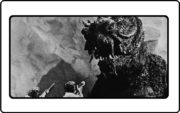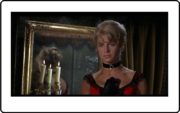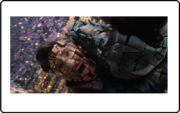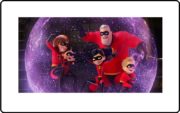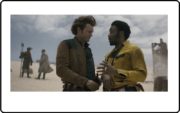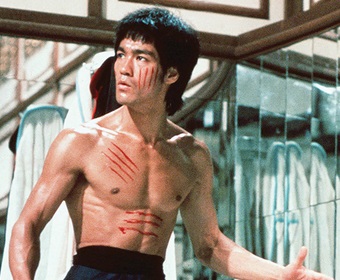
With the release of action film John Wick: Chapter 4 upon us we decided to take a look at what could be considered the best action film ever.
Determining the best action film of the 2000s can be subjective, as different movies cater to various tastes and preferences. However, one film that often emerges as a popular choice and a defining action movie of that decade is “The Dark Knight” (2008), directed by Christopher Nolan.
“The Dark Knight” is a superhero film based on the DC Comics character Batman. It serves as the sequel to “Batman Begins” (2005) and features Christian Bale reprising his role as Batman/Bruce Wayne. The film introduces the iconic villain, the Joker, portrayed by the late Heath Ledger, who won a posthumous Academy Award for Best Supporting Actor for his mesmerizing performance.
What sets “The Dark Knight” apart is its dark and gritty tone, exploring complex themes of morality, chaos, and the nature of heroism. The film delves into the psychological and ethical struggles faced by Batman as he confronts the Joker, a chaotic force challenging his beliefs and pushing him to his limits.
“The Dark Knight” is known for its compelling storytelling, strong performances, and intense action sequences. Christopher Nolan’s direction brings a grounded and realistic approach to the superhero genre, emphasizing practical effects and stunt work. The film’s set pieces, such as the thrilling Batman versus Joker chase scene and the explosive finale, are executed with precision and create a sense of tension and excitement.
Heath Ledger’s portrayal of the Joker is widely regarded as one of the greatest performances in cinema history. His portrayal of the iconic villain is chilling, captivating, and unpredictable, leaving an indelible mark on the genre. Ledger’s posthumous Oscar win further solidified his contribution to “The Dark Knight” and elevated the film’s status.
“The Dark Knight” was not only a critical success but also a box office phenomenon, grossing over a billion dollars worldwide. Its impact on the superhero genre and action filmmaking as a whole cannot be overstated. The film raised the bar for what could be achieved in terms of storytelling, character development, and action sequences within the genre.
While “The Dark Knight” is often cited as the best action film of the 2000s, it’s worth noting that there were other notable contenders during that decade. Films like “The Bourne Identity” (2002) and its sequels, “Kill Bill: Volume 1” (2003), “Gladiator” (2000), and “Crouching Tiger, Hidden Dragon” (2000) also left a significant impact and have their own dedicated fan bases.
The 1990s was a decade that produced several exceptional action films, making it challenging to pinpoint a definitive “best” action film. However, one film often hailed as one of the greatest action movies of the 1990s is “Terminator 2: Judgment Day” (1991), directed by James Cameron.
“Terminator 2: Judgment Day” is a science fiction action film and a sequel to the 1984 film “The Terminator.” The movie stars Arnold Schwarzenegger, Linda Hamilton, and Edward Furlong. In this installment, a new and more advanced Terminator, the T-1000 (Robert Patrick), is sent back in time to kill a young John Connor (Edward Furlong), the future leader of the human resistance. The original Terminator (Arnold Schwarzenegger), now reprogrammed to protect John, becomes his ally as they try to prevent the apocalyptic future.
What sets “Terminator 2: Judgment Day” apart is its groundbreaking visual effects, particularly the seamless integration of computer-generated imagery (CGI) and practical effects. The film’s action sequences are intense and well-crafted, showcasing the relentless pursuit of the T-1000 and the strength of the reprogrammed Terminator. The iconic truck chase scene and the climactic showdown at the steel mill remain etched in the minds of audiences.
In addition to its technical achievements, the film benefits from strong performances, particularly from Linda Hamilton as the fierce and determined Sarah Connor, who undergoes significant character development throughout the story. Arnold Schwarzenegger’s portrayal of the Terminator is also highly memorable, blending his trademark stoicism with moments of unexpected humor.
“Terminator 2: Judgment Day” received critical acclaim upon its release and became a box office sensation. It won four Academy Awards, including Best Visual Effects, and solidified James Cameron’s reputation as a master of action cinema. The film’s impact on popular culture is undeniable, and it continues to be regarded as a benchmark for action filmmaking.
While “Terminator 2: Judgment Day” is often cited as one of the best action films of the 1990s, it’s worth noting that opinions on the “best” film can vary among individuals. Other notable action films from the 1990s include “Die Hard 2: Die Harder” (1990), “Speed” (1994), “The Matrix” (1999), and “Léon: The Professional” (1994), among others, each bringing its own unique style and contribution to the genre.
Which Film is considered the best action film of the 1980’s?
When it comes to determining the best action film of the 1980s, there are several highly regarded contenders that have left a lasting impact on the genre. One film often cited as the best action film of that decade is “Die Hard” (1988), directed by John McTiernan.
“Die Hard” stars Bruce Willis in his breakout role as John McClane, a New York City police officer who finds himself trapped in a Los Angeles skyscraper during a hostage situation orchestrated by a group of terrorists led by Hans Gruber, played by Alan Rickman. McClane must use his resourcefulness, wit, and physical prowess to outsmart the terrorists and save the hostages, including his estranged wife.
What sets “Die Hard” apart is its innovative approach to the action genre. Rather than featuring an invincible hero, the film presents a vulnerable and relatable protagonist in John McClane, who gets hurt, bleeds, and faces overwhelming odds. This shift in the portrayal of action heroes helped redefine the genre for years to come.
The film is known for its tightly constructed plot, intense action sequences, and memorable one-liners. It combines thrilling gunfights, explosive set pieces, and clever cat-and-mouse scenarios to create an exhilarating and suspenseful experience. Bruce Willis delivers a charismatic performance, displaying both vulnerability and resilience as McClane. Alan Rickman’s portrayal of the sophisticated and cunning Hans Gruber is also widely acclaimed and contributed to making him an iconic villain.
“Die Hard” was a critical and commercial success upon its release and spawned a successful franchise with several sequels. It has since become a benchmark for action films, influencing countless movies in its wake. The film’s impact on the genre is evident in the term “Die Hard on a _____” frequently used to describe films with similar premises.
While “Die Hard” is often regarded as the best action film of the 1980s, it’s worth noting that there were other exceptional contenders during that decade. Films like “Raiders of the Lost Ark” (1981), “Predator” (1987), “Lethal Weapon” (1987), and “The Terminator” (1984) also left an indelible mark on the action genre and continue to be highly regarded by audiences and critics alike.
Which Film is considered the best action film of the 1970’s?
When discussing the best action film of the 1970s, one film often stands out as a groundbreaking and influential entry in the genre: “Enter the Dragon” (1973), directed by Robert Clouse and starring Bruce Lee.
“Enter the Dragon” is a martial arts action film that showcases Bruce Lee’s exceptional talent and charisma. The movie tells the story of Lee, a martial arts expert and undercover agent who is invited to a martial arts tournament on a private island. While participating in the tournament, he uncovers a criminal organization involved in drug trafficking and slavery. Lee must use his formidable skills to expose and dismantle the operation.
What sets “Enter the Dragon” apart is its stylish and dynamic fight choreography, executed by Bruce Lee himself. His lightning-fast movements and distinct martial arts philosophy captivated audiences around the world and revolutionized the representation of martial arts on film. The action sequences are intense, fluid, and incredibly well-executed, making the film a visual spectacle.
Beyond the action, “Enter the Dragon” also addresses themes of honor, justice, and the power of self-discipline. Bruce Lee’s philosophy and teachings are woven throughout the narrative, elevating the film beyond its action-packed sequences.
Unfortunately, Bruce Lee passed away shortly before the film’s release, adding an aura of tragedy and mystique to his final completed work. However, “Enter the Dragon” solidified his legacy and introduced him to a global audience, making him an international icon and a symbol of martial arts excellence.
“Enter the Dragon” was not only a critical and commercial success but also had a profound impact on the action genre, influencing future martial arts films and popularizing martial arts in Western cinema. Its success paved the way for the rise of martial arts action stars and inspired countless filmmakers and martial artists alike.
While other notable action films were released in the 1970s, such as “Dirty Harry” (1971), “The French Connection” (1971), and “The Warriors” (1979), “Enter the Dragon” stands out as a groundbreaking and culturally significant film that encapsulates the spirit and prowess of Bruce Lee. Its impact on the action genre and its enduring popularity continue to make it widely regarded as one of the best action films of the 1970s.
Whilst “Die Hard” is frequently mentioned as a top contender for the best action film of all time, it’s essential to acknowledge that there are numerous other exceptional entries in the genre. Films like “Terminator 2: Judgment Day” (1991), “Raiders of the Lost Ark” (1981), “Mad Max: Fury Road” (2015), and “The Dark Knight” (2008) are often cited as contenders for the title, each offering distinct strengths and leaving their own indelible marks on the genre.



